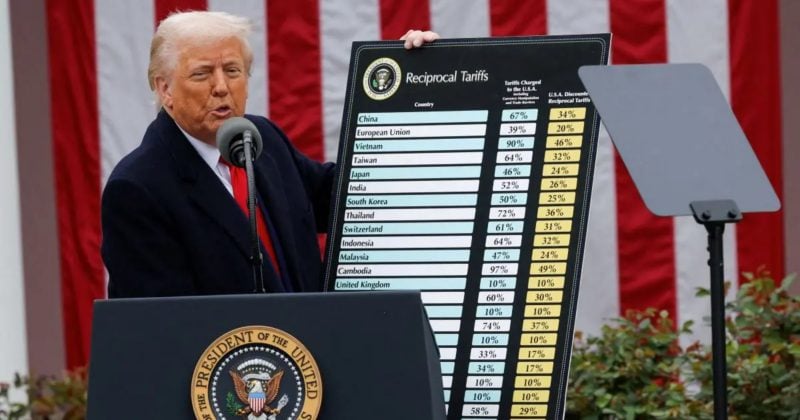
Liberation Day tariffs blocked by courtroom, Trump staff pushes again with attraction
Key Takeaways
- A federal courtroom blocked Trump’s tariffs for exceeding presidential authority.
- The courtroom dominated that solely Congress can regulate worldwide commerce, not the president.
Share this text
A US federal courtroom on Wednesday decided that President Donald Trump lacked the authorized foundation underneath the Worldwide Emergency Financial Powers Act (IEEPA) to impose sweeping international tariffs.
In response, the Trump administration introduced plans to attraction the choice, aiming to reinstate the tariffs that had been a central part of its commerce coverage.
The choice, issued by the Manhattan-based Court docket of Worldwide Commerce, got here in response to 2 lawsuits filed by companies and state governments.
In April, Trump declared a nationwide emergency over commerce deficits and non-reciprocal practices, calling them a menace to US safety. Utilizing IEEPA, he imposed a ten% tariff on most imports, with greater charges for high trade-deficit international locations, aiming to guard US employees and restore financial sovereignty.
Nevertheless, Trump’s use of the IEEPA for tariffs sparked controversy and authorized challenges. Critics argued that the legislation wasn’t meant to authorize tariffs and that commerce deficits don’t qualify as a nationwide emergency.
Appearing on behalf of 5 American companies, the Liberty Justice Heart initiated a lawsuit difficult the tariffs. These corporations argued that the tariffs would hurt their operations.
The courtroom on Wednesday discovered that Trump’s use of IEEPA, which generally permits the president to behave in response to nationwide financial emergencies, normally involving international threats like terrorism or hostile nations, didn’t justify the broad imposition of tariffs on imports from international locations operating commerce surpluses with the US.
In different phrases, tariffs don’t fall underneath that emergency scope when utilized so broadly and out of doors of an outlined nationwide menace.
Extra importantly, the courtroom emphasised that solely Congress has the constitutional authority to manage worldwide commerce, an influence the president can’t override with emergency declarations.
“The courtroom doesn’t learn IEEPA to confer such unbounded authority and units apart the challenged tariffs imposed thereunder,” the judges wrote.
There are additionally six different ongoing authorized challenges, together with fits filed by 13 US states and different small enterprise teams.
Markets reeled from Trump’s tariffs as Bitcoin hit five-month low
US equities and the greenback remained unstable in mid-April as markets reacted to President Trump’s sweeping “Liberation Day” tariffs, imposed underneath the IEEPA. The ensuing uncertainty rippled by way of international inventory, bond, and gold markets, and likewise triggered sharp declines in crypto property.
Bitcoin fell under $75,000, its lowest degree since final November, as markets reacted to Trump’s tariffs and the uncertainty they triggered.
Nevertheless, analysts famous that Trump’s aggressive use of emergency commerce powers could finally improve Bitcoin’s attraction as a hedge towards US coverage threat, probably accelerating a worldwide shift away from reliance on the US greenback.
At press time, Bitcoin was buying and selling at round $107,700, down 1% within the final 24 hours, per TradingView.
Share this text


